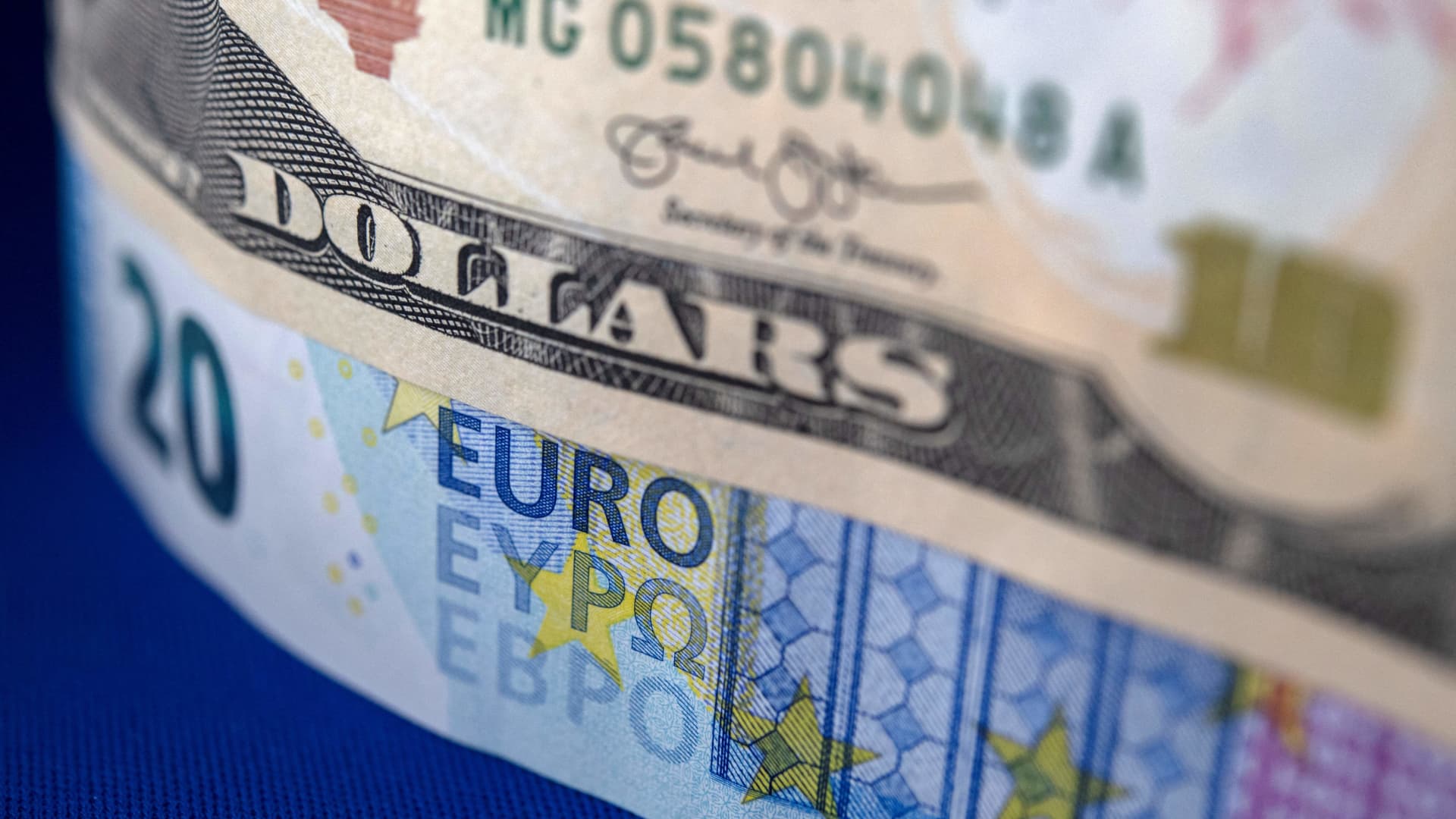
US dollars and Euro bills are pictured on September 6, 2022 in Brest, western France.
Fred Tanneau | Afp | Getty Images
The surging U.S. dollar is causing havoc in global currency markets and that appears to be spilling into the equity markets.
For investors who want to limit the damage caused by currency swings, there are some exchange-traded funds that have performed well this year and could continue to do so if the dollar’s rise continues.
The British pound hit a record low against the dollar on Monday, and the greenback strengthened against other major currencies including the Japanese yen. The DXY US Dollar Currency Index was trading near 114 on Monday, up from roughly 109 at the start of the month and 96 at the beginning of the year.
The aggressive rate hikes from the Federal Reserve have been one reason for the large gains, and even as other central banks turn more hawkish there isn’t a clear end in sight for the run.
“Our currency team raised its forecast for the USD. On a DXY basis, they are now forecasting a year-end target of 118, which means no relief in sight, at least fundamentally speaking,” Morgan Stanley’s Mike Wilson wrote in a note to clients on Wednesday.
Betting on the dollar
However, those funds serve as directional bets on the dollar. That means investors buying in now could see negative returns even if the greenback stays abnormally strong in the month ahead.
Investors should also be aware of the weightings in the indexes that the funds are based on. The dollar could gain against one currency while falling against another, which may limit the usefulness of these funds for investors who have bets concentrated in only one or two foreign markets.
Currency hedging strategies
For investors who want international exposure in their portfolios, the surging dollar is an even bigger worry.
There are many currency-hedged ETFs that have outperformed their un-hedged counterparts so far this year, which could help investors limit the impact of a stronger dollar.
The iShares Currency Hedged MSCI EAFE ETF (HEFA), for example, has dramatically performed for the firm’s Core EAFE fund.
And the WisdomTree Japan Hedged Equity Fund (DXJ) is basically flat year to date even though the unhedged version has dropped more than 25%.
Investors should remember that these type of funds still serve as bets on foreign stock markets, even with a U.S. dollar hedge. With the greenback so strong, there is a chance that these funds could underperform domestic markets even if they successfully do their job of hedging foreign equities.
Dividend funds
Dividend funds could also be a way for investors to defend against the strong dollar. While the moves in the currency market could hit earnings in the coming quarters, companies are often reluctant to cut their dividends, and the high demand for dollars could cause more investors to prioritize dividend payouts.
The SPDR Portfolio S&P 500 High Dividend ETF (SPYD) and the Vanguard High Dividend Yield ETF (VYM) have both handily outperformed the S&P 500 this year.
To be sure, the potential for a global recession could force dividend suspensions or cuts in the coming months.
